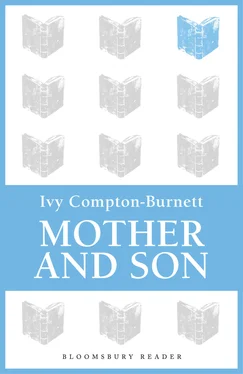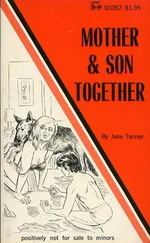“We all do that,” said Hester. “It is a sobering thought.”
“I suppose we might improve,” said Emma. “Not that I have known a case of it.”
“Do you suggest there is room for improvement in us?” said Rosebery, smiling.
“You are not good at recognising cases of things,” said Hester. “I suppose you have never met a case of human trouble.”
“Perhaps I have not. Ought I to want to meet one? It is reasonable to want to see a thing for the first time.”
“I shall never forget the first time I saw it. I have never really felt the same since.”
“I suppose I must really have seen it. But I have always felt the same. Perhaps that is why I forget.”
“You will lead people to believe what you say of yourself.”
“Well, they would believe it easily. It is so like what might be said of them.”
“I thought you were not like other people.”
“So you believe what I say of myself.”
“There is a convention that we must choose between silence about ourselves and self-disparagement,” said Rosebery.
“Well, we could not be allowed to praise ourselves,” said Miss Burke.
“Danger would lie there, it is true. Not that I should have so much to say in my own favour.”
“You are beginning your self-praise,” said Julius.
“I should tell the simple truth,” said Hester. “What reason could there be for doing anything else?”
“Have you forgotten that self-praise is not allowed?” said Emma.
“Give us your account of yourself, Miss Greatheart,” said Julius, “without regard to what is allowed.”
“No, Hester is here. She would know how wrong the account was.”
“This conversation does not seem to be leading anywhere,” said Hester.
“It is none the worse for that,” said Julius.
“Some, people would not agree, for example Mrs. Hume. But we cannot go on depending on her.”
“I do not see why,” said Rosebery. “I am conscious of her presence. I do not know if such a feeling is common.”
“It cannot be,” said Emma. “Think how it would alter people’s lives.”
“There would be no such thing as a second marriage,” said Miss Burke.
“I am amused by the way you single ladies pose as authorities on such things.”
“The first wife would often understand,” said Hester.
“So she would,” said Emma. “There would be the trouble.”
“I am in a safe position,” said Rosebery. “One cannot have a second mother. No relation threatens that one.”
“Some people need something more than memories,” said Julius.
“I have made it clear, Father, that I have more. But I am not denying that I might have more still.”
“Many people stand alone,” said Hester. “They owe no debt to the past.”
“Miss Wolsey, I do not envy them.”
“They may not envy themselves. Some would not.”
“I think their position seems easier,” said Miss Burke. “Or anyhow simpler.”
“The complex position may resolve itself,” said Hester. “For example, second marriages are often very happy.”
“So are first ones,” said Emma.
“People’s experience is a help to them. They have learned to give and take. They do not expect too much.”
“That seems a pity, when the chief pleasure in anything is the anticipation.”
“They do not expect the impossible.”
“But there must be great pleasure in anticipating that.”
“Well, Miss Greatheart, we shall see you on Wednesday,” said Julius. “The carriage will be at the station, and I shall be in it.”
“That is a rare attention on my father’s part,” said Rosebery. “I think it is unprecedented.”
“Oh, that is quite unjust,” said Hester. “He would never fail as a host.”
“Father,” said Rosebery, glancing at the window, “have I your permission to include Miss Burke in the invitation? I think it would be a pleasure to us all.”
“I hope indeed that she will come with Miss Greatheart.”
“Thank you, I should like to come,” said Miss Burke. “And it is my free day.”
“I ought to wish that all your days were free,” said Emma. “And I do not wish it.”
“It will be in a different capacity from your last visit,” said Rosebery, in his lower tone. “Then you were in a manner a suppliant; this time you will be welcomed as a guest.”
“I shall be glad not to be by myself,” said Emma. “I am rather ashamed of being alone in the world.”
“There are reasons why a woman is better accompanied,” said Rosebery.
“Oh, the world is not as rough as it was,” said Hester. “I went safely by myself to your house.”
“So did I,” said Miss Burke. “I think companions do.”
“It does not sound the right preparation for their profession,” said Julius.
“They would usually be by themselves.”
“It seems a contradiction in terms.”
“Father, I have an unwelcome duty. I remember it fell to me before. My watch warns me of the hour, and time and tide wait for no man.”
“That is such a respectful saying,” said Emma. “As if they might wait for us, and we should naturally think they would.”
“Well, they will not,” said Hester. “Yes, Plautus, I must leave you. Do not look at me with an expression that pierces the heart.”
Plautus was looking at an insect, in a manner that might have affected it in this way, and raised his paw towards it.
“I had no idea, Mr. Hume, that you were expecting guests, or I should not have timed my exit to coincide with them. I think this lady and I have met before, though I cannot place the occasion.”
“You once passed her on her way to the station,” said Francis. “I remember you told us of it. She was with Cousin Rosebery.”
“Your memory is better than mine. I have no such definite recollection. She must excuse my claiming an acquaintance on such an inadequate ground; it was indeed no more than a semi-conscious impression.”
“You asked us about it,” said Adrian. “You were interested in Cousin Rosebery’s being with a lady.”
“I think, Adrian,” said Mr. Pettigrew, laughing and glancing round, “that you impute to me the feelings that might be your own at a different stage.”
“Pettigrew is ashamed of remembering Miss Burke,” said Adrian.
“And you made him more so,” said Francis, “as was doubtless your object.”
“How does Miss Burke feel about it?” said Alice. “Is it an occasion to be so often recalled?”
Julius and Emma exchanged a smile.
“I do not check my young people,” said Hester. “I take the view that they have as much right to express themselves as anyone else.”
“Anyhow in their own home,” said Julius.
“It is sometimes permitted there less than anywhere.”
“As it used to be to us,” said Adrian, and flushed as he ended.
“You need not make up for lost time,” said his brother.
“Time that is mis-spent does not return,” said Rosebery, hearing the words.
“That is a pity,” said Alice, “as it is often so pleasantly spent.”
“Come, I want you to do yourself more justice than that,” said Hester.
“Does Uncle like Miss Greatheart better than Miss Wolsey?” said Adrian, as their elders left them.
“He is beginning to like her better than anyone,” said his sister.
“Would a wife turn us out, because we were not his children?”
“She might tolerate us the better for that.”
“It seems that we have to be tolerated. And it was beginning to be different. Does Uncle mean to give us a mother? It would only be an aunt.”
“And he knows what he does by giving us that.”
Читать дальше












